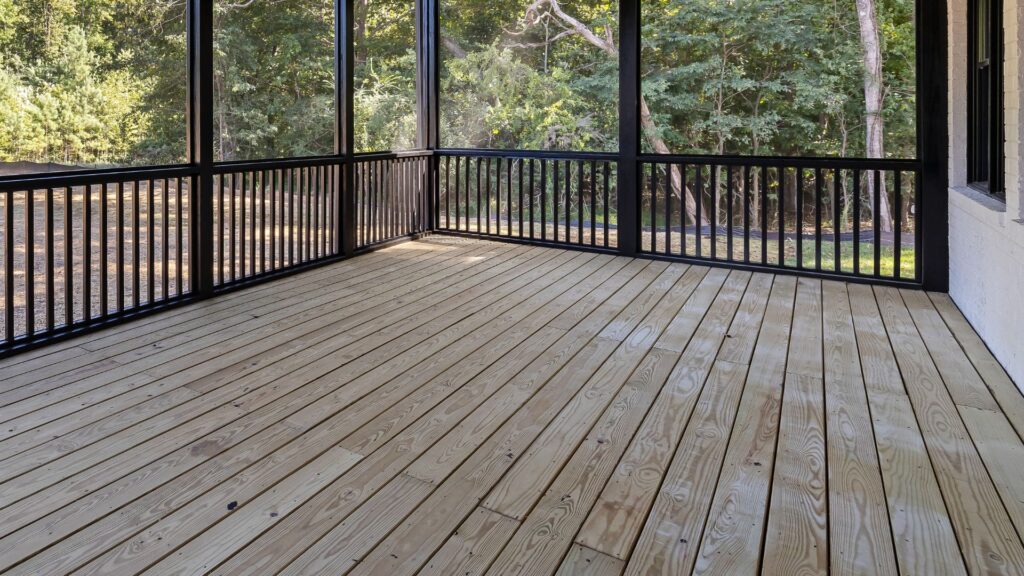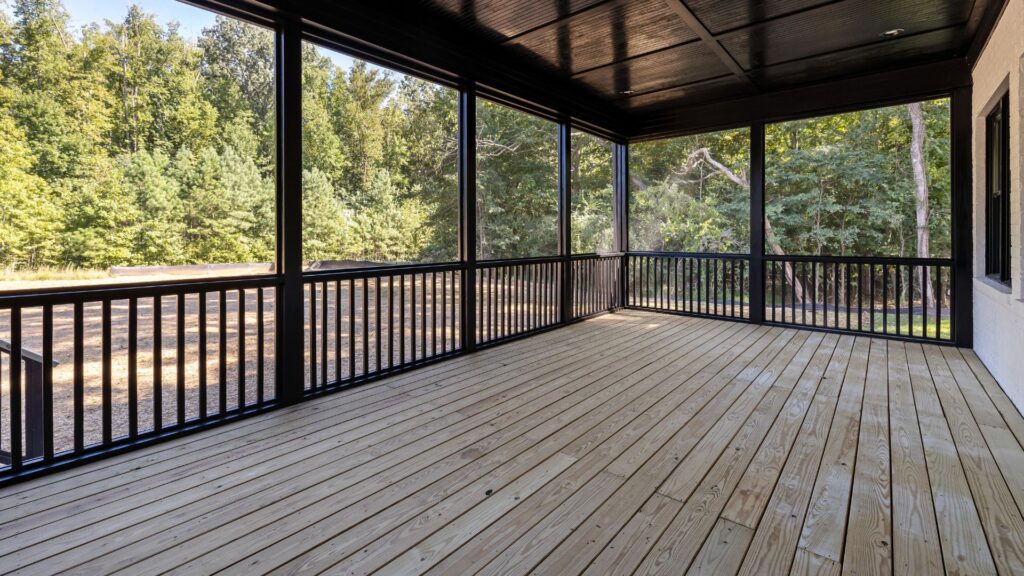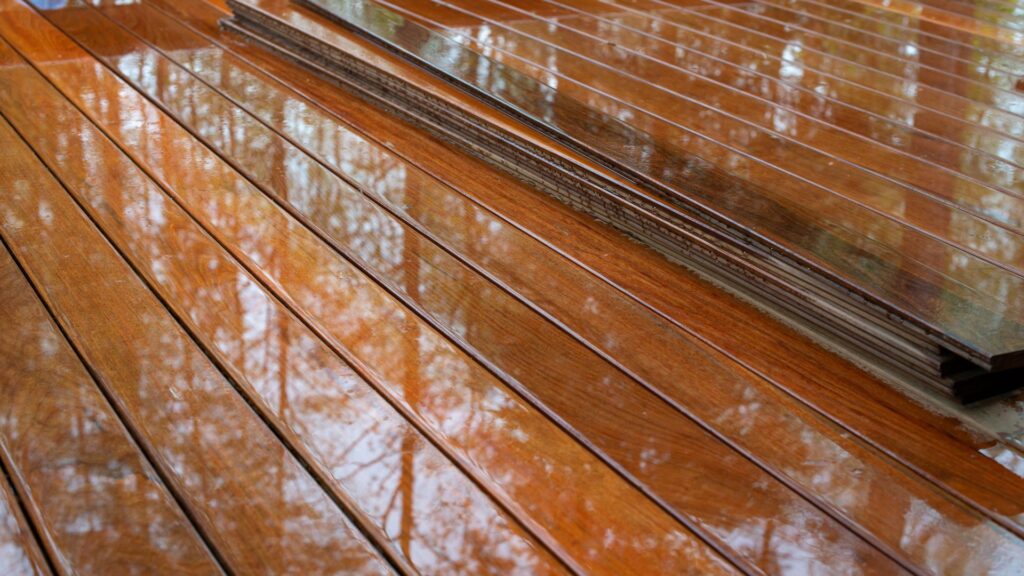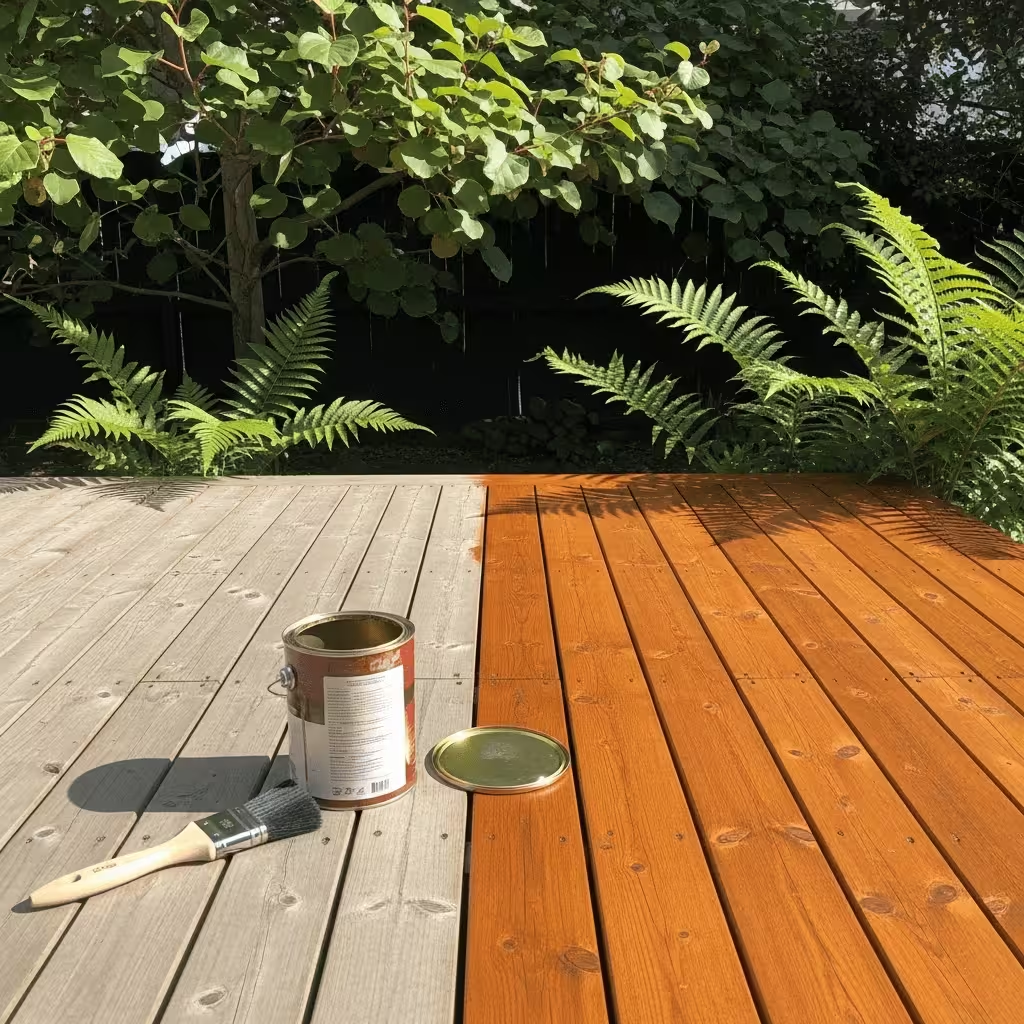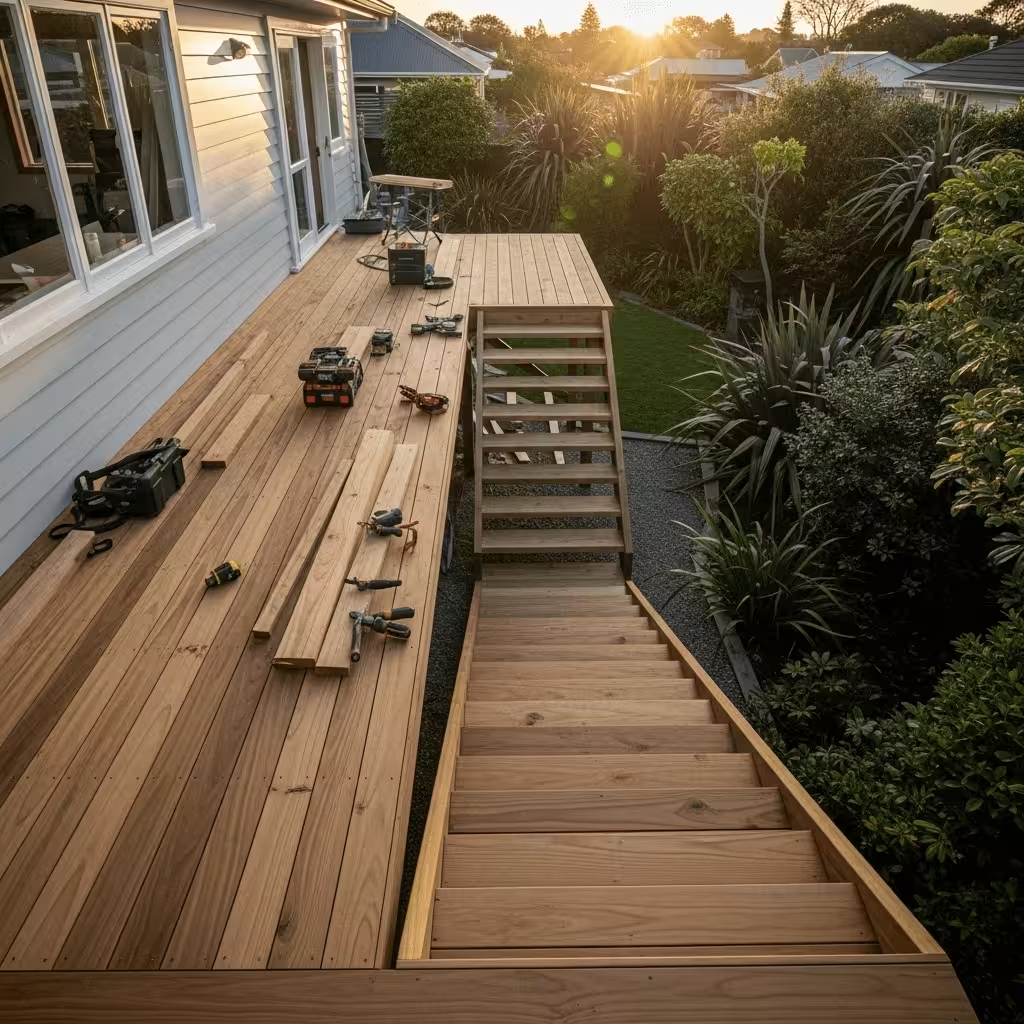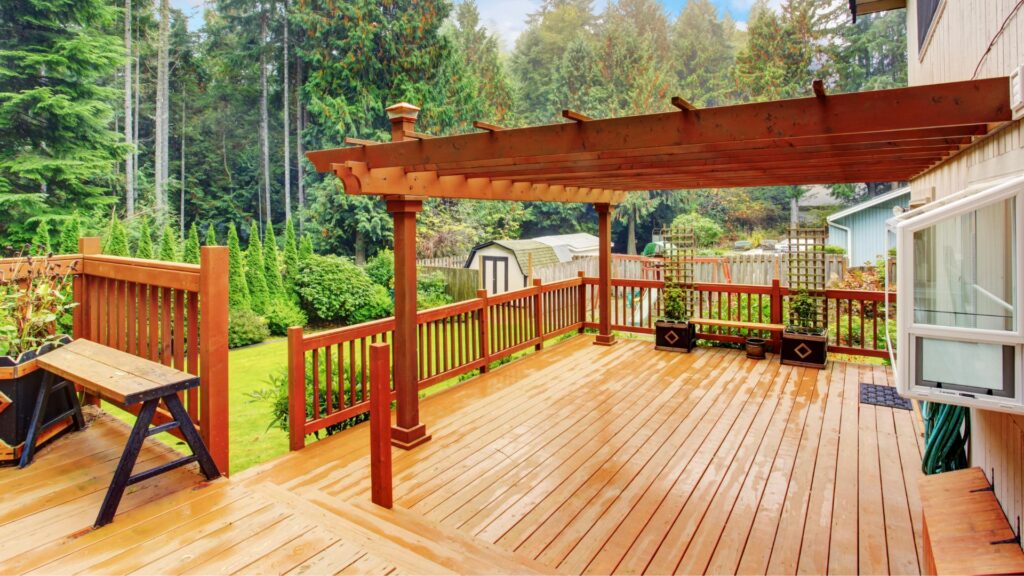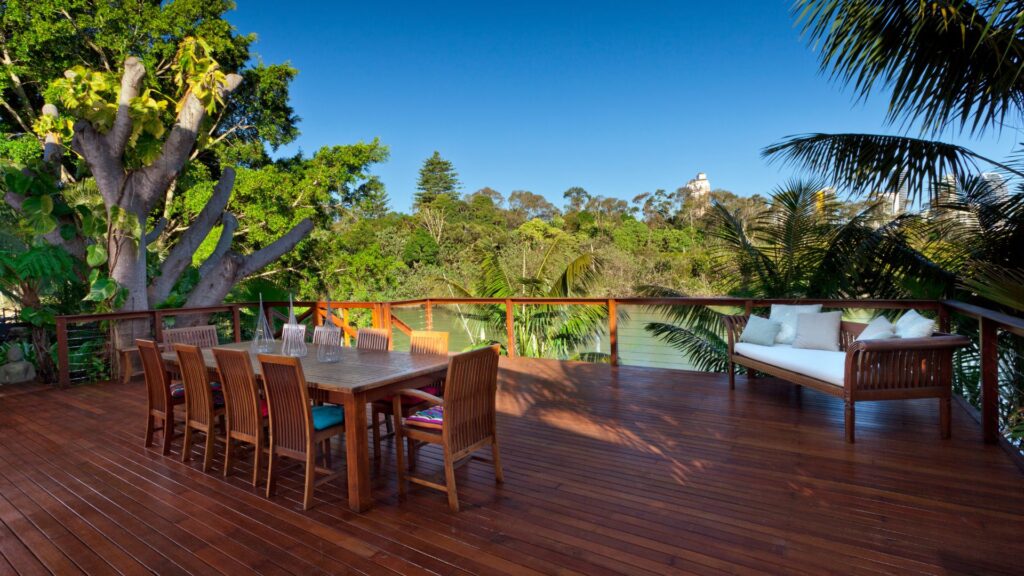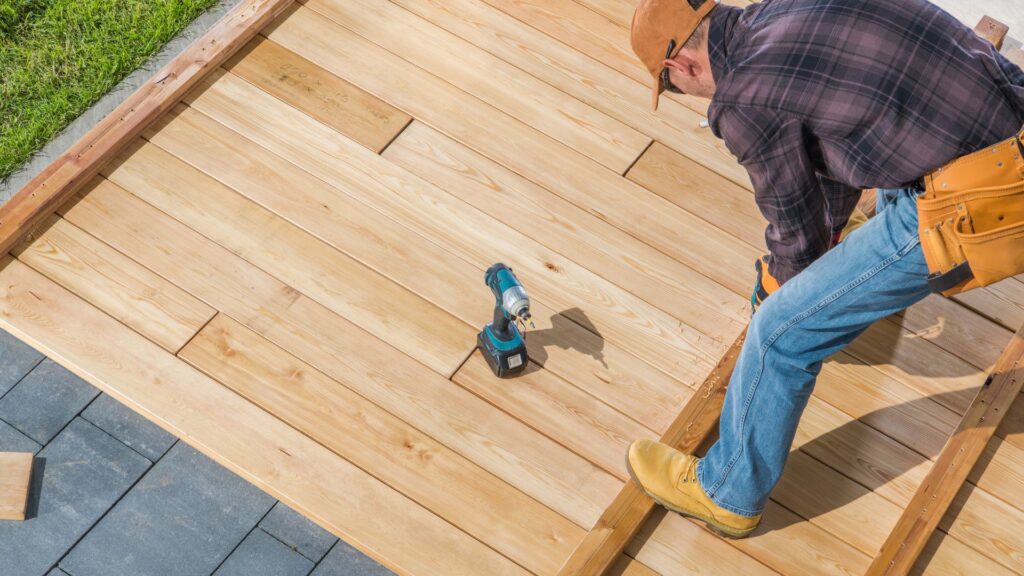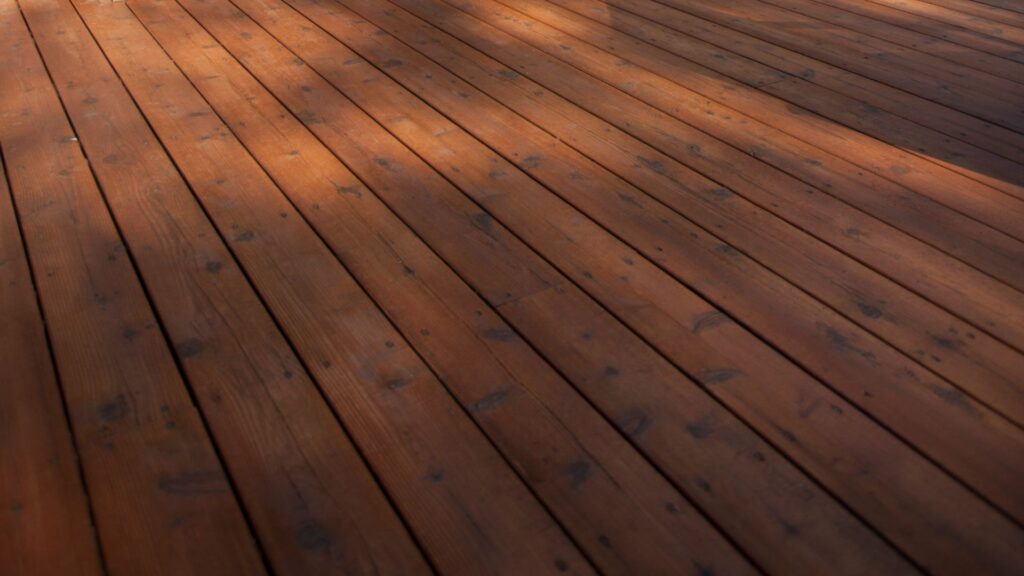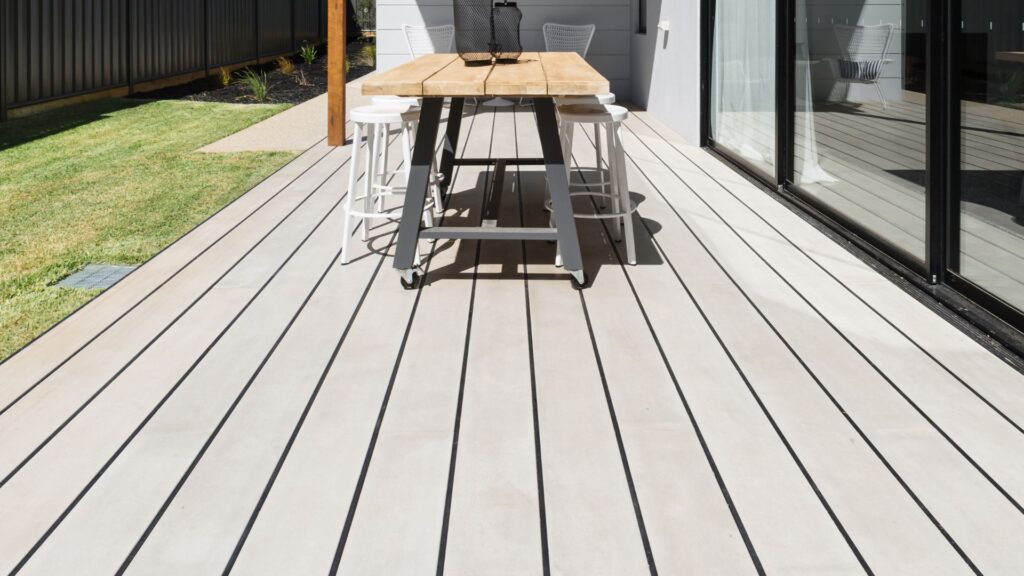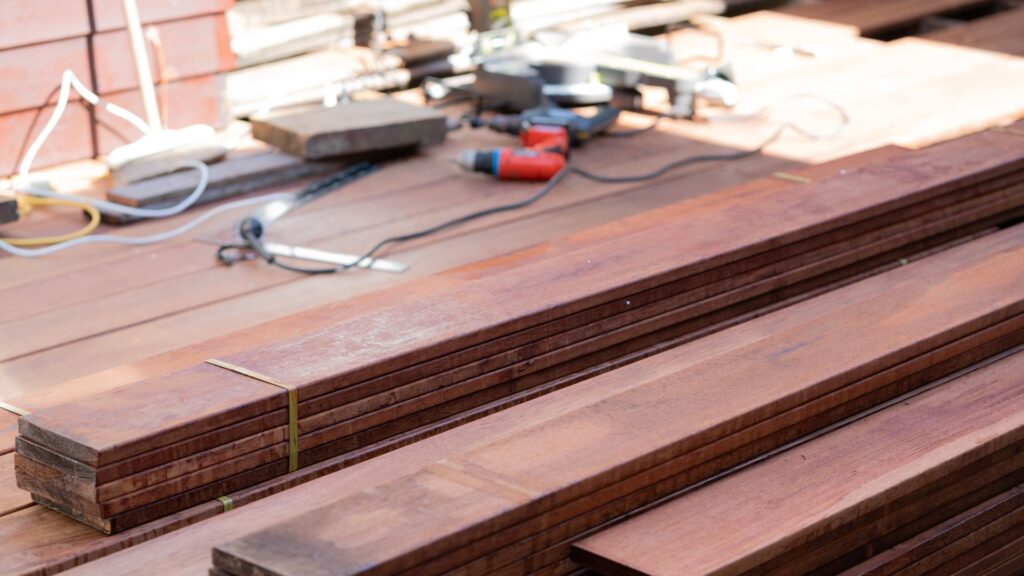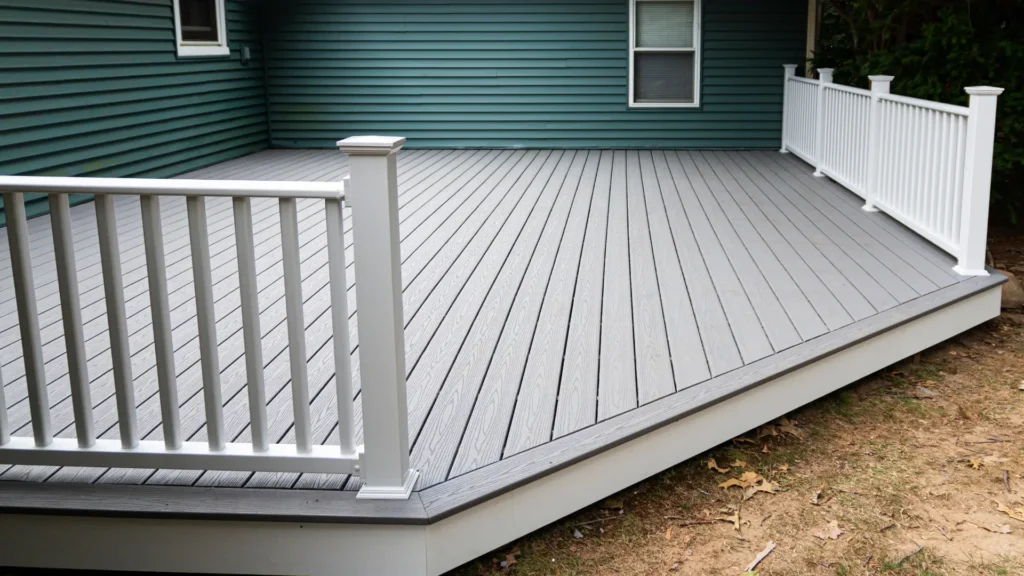Welcome to your go-to guide for answering one of the most common homeowner questions: How much does it cost to build a 12×12 deck? A deck is more than just an outdoor addition—it’s a place for family gatherings, weekend barbecues, and added home value. In this article, you’ll learn the average cost of building a 12×12 deck, the factors that affect pricing, how material choices make a difference, and whether it’s worth tackling the project yourself or hiring a pro. By the end, you’ll have a clear picture of what to budget and the smartest ways to save money while still getting the deck you’ve always wanted.
A 12×12 deck typically costs between $2,000 and $8,000 to build. The final price depends on materials (wood, composite, or PVC), labor rates, design complexity, and extra features like railings or stairs. Homeowners can save by choosing basic wood and DIY installation, while professional-built composite decks cost more but last longer with less maintenance.
Table of Contents
Average Cost Of A 12×12 Deck
The average cost of a 12×12 deck usually ranges between $2,000 and $8,000. The final price depends on the materials you choose, the labor required, and whether you handle the build yourself or hire a professional. A small, simple wooden deck can stay on the lower end, while a composite or PVC deck with railings, stairs, or custom features may cost more.
DIY Vs. Professional Installation
When looking at deck installation cost, labor is often the biggest factor. Building a deck yourself can save 30–50% of the total project cost because you eliminate contractor fees. For a 12×12 deck, this can mean paying closer to $2,000–$3,500 if you only buy materials.
The trade-off is time, effort, and skill. DIY requires proper tools, accurate measurements, and knowledge of local building codes. Mistakes can be costly to fix. Professional installation typically ranges from $4,000 to $8,000 but delivers speed, quality, and code compliance.
National Average And Regional Variations
Across the country, the national average cost to build a 12×12 deck falls between $4,000 and $6,000. Still, location plays a big role. In cities with higher labor rates, prices can lean toward the upper end of the range. In rural areas, labor may be more affordable, and costs often drop below the average.
Other variables—like seasonal demand or the availability of materials—can also raise or lower project costs. For example, building during peak summer months may come with higher contractor fees, while off-season projects can sometimes save you money.
The average cost of a 12×12 deck is shaped by material choice, installation method, and location. Whether you decide to build it yourself or hire a professional, knowing these numbers helps you set a realistic budget and avoid surprises down the line.
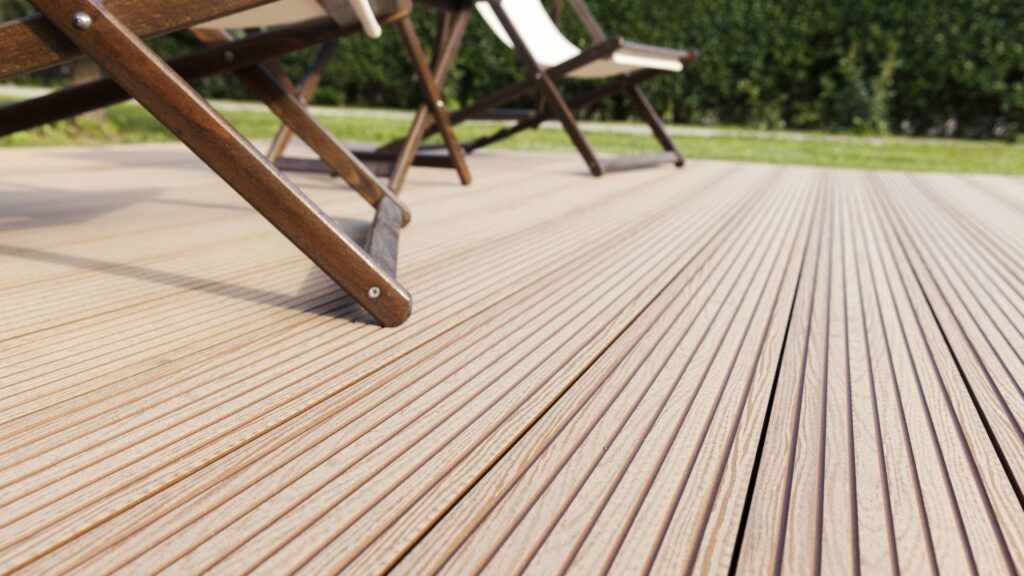
Key Factors That Affect Deck Cost
When planning a 12×12 deck, the price you pay goes beyond just the size of the structure. Several important factors play a role in determining your total investment. Understanding these details will help you budget more accurately and avoid surprises along the way.
Material Choice
The type of material you choose has the biggest impact on overall cost.
- Pressure-Treated Wood: This is the most affordable option, averaging $15–$25 per square foot. It’s widely available and offers a natural look, but it requires regular staining, sealing, and upkeep to prevent rot and warping.
- Cedar: Cedar is slightly more expensive than pressure-treated lumber, usually $25–$30 per square foot. It has a beautiful finish and natural resistance to insects but still needs routine maintenance to last.
- Composite: Composite decking blends wood fibers and plastic, giving you a low-maintenance option. Costs range between $30–$45 per square foot. It resists moisture and doesn’t require staining, but the upfront price is higher.
- PVC: PVC decking is completely synthetic, highly durable, and often priced between $40–$60 per square foot. It requires little maintenance, but some homeowners find it less natural-looking compared to wood.
Choosing the right material comes down to balancing budget, aesthetics, and long-term durability.
Labor Costs
Labor is another major cost driver. Professional installation can range from $10–$30 per square foot depending on your location.
- Regional Differences: Labor costs vary widely depending on the local economy. Urban areas often have higher rates, while rural locations may be more affordable.
- Contractor vs. Handyman: A licensed contractor usually charges more but brings experience and ensures compliance with building codes. A handyman might charge less, but quality and knowledge may vary.
Getting multiple quotes before you commit is the best way to manage this expense.
Deck Height And Design Complexity
A simple, ground-level deck costs less than one that’s elevated or includes complex design features. Taller decks require stronger support structures, which adds to both material and labor costs. Multi-level decks, curved layouts, or custom patterns will also push the price higher.
Permits And Inspections
Most municipalities require a building permit before construction begins. Permit fees range from $100 to $500 depending on your local regulations. Inspections may also be necessary during and after construction, which can add extra time and cost. Skipping permits is risky and may result in fines or problems when selling your home later.
Extra Features
Adding extras like railings, stairs, or lighting will increase the overall price but can also enhance safety and usability.
- Railings: Expect to pay $20–$60 per linear foot depending on the material.
- Stairs: Costs vary depending on height and design but often range between $300–$1,500.
- Lighting: Built-in deck lighting adds ambiance and safety, with prices starting at around $200 for simple fixtures and going up for custom designs.
While these upgrades increase your budget, they also improve the deck’s function and appeal.
Every deck project is unique, and costs can change based on choices you make at each step. By considering material, labor, design, permits, and extra features, you’ll have a clearer picture of what to expect before construction begins. Planning ahead with these factors in mind ensures your 12×12 deck fits both your budget and your lifestyle.
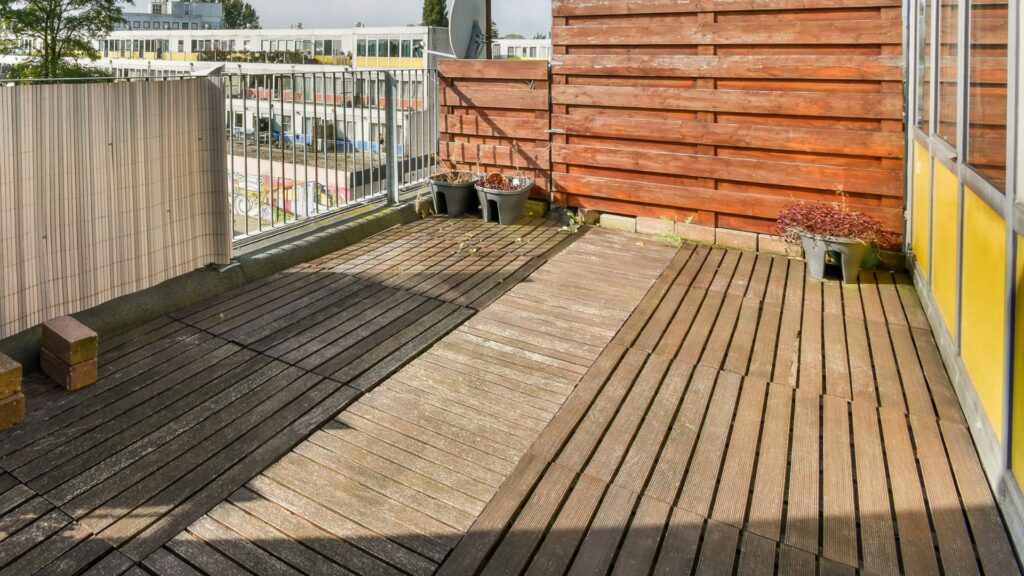
Material Cost Breakdown
One of the biggest factors that determines how much a 12×12 deck will cost is the material you choose. Each option comes with different deck material prices, levels of maintenance, and overall lifespan. Whether you’re on a tight budget or want a deck that lasts for decades, comparing the cost per square foot and the pros and cons of each material will help you make the right choice.
Below is a simple breakdown of the most common options for homeowners:
| Material | Average Cost Per Square Foot | Pros | Cons |
| Wood (Pressure-Treated or Cedar) | $15 – $25 | Affordable upfront, easy to find, natural look | Requires regular staining and sealing, shorter lifespan (10–15 years) |
| Composite | $30 – $60 | Low maintenance, resists rot and insects, long lifespan (25+ years) | Higher upfront cost, can get hot in direct sun |
| PVC (Vinyl) | $40 – $70 | Extremely durable, waterproof, almost no maintenance | Most expensive, limited natural wood appearance |
When comparing deck material prices, keep in mind that the cheapest option today may not be the most cost-effective in the long run. For example, wood looks great and is budget-friendly, but it requires regular maintenance and has a shorter lifespan. On the other hand, if you want low maintenance, composite might be worth the extra upfront cost because you’ll save time and money on upkeep over the years. PVC sits at the top of the price range, but it delivers unmatched durability and weather resistance.
Your choice ultimately depends on your budget, how much time you want to spend on maintenance, and the look you want for your outdoor space. By carefully weighing the cost per square foot against the pros and cons, you can pick a material that fits your needs and adds value to your home.
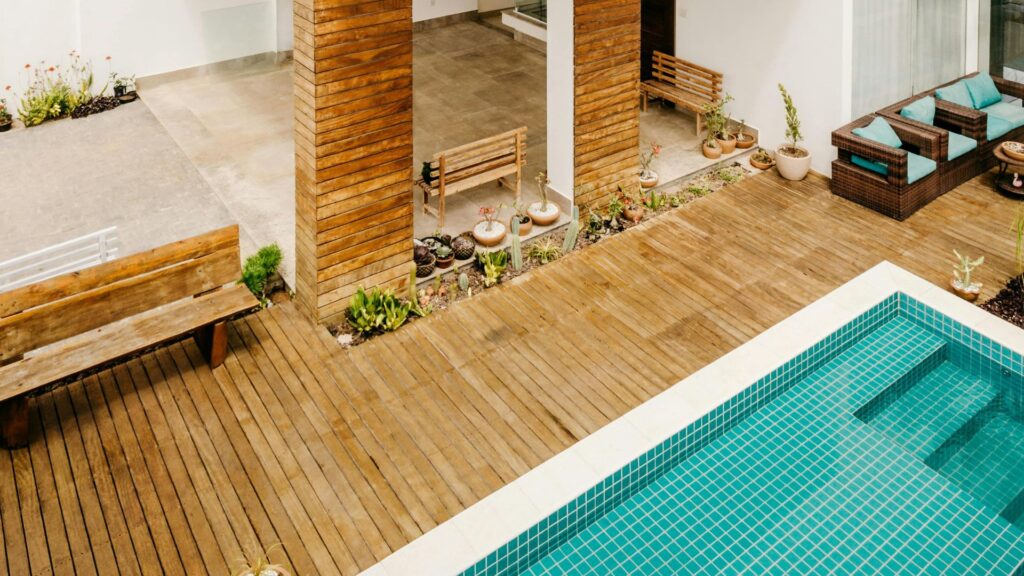
DIY Vs. Hiring A Professional
When it comes to building a 12×12 deck, one of the biggest decisions you’ll face is whether to take the DIY route or hire a professional contractor. Both options have their pros and cons, and the right choice often depends on your budget, skill level, and the amount of time you’re willing to commit.
Cost Savings Of DIY
The main reason many homeowners consider a DIY deck is to save money. By building it yourself, you eliminate labor costs, which can account for 40% to 60% of the total project expense. For example, if a professionally built 12×12 deck costs $6,000, doing it yourself could reduce that figure to around $3,000–$4,000 depending on materials. If you’re handy with tools and have prior experience with carpentry, the savings can be significant.
Risks Of DIY Deck Building
While the cost savings are tempting, building your own deck comes with several risks. Mistakes in measurements, cuts, or structural supports can lead to safety hazards and costly repairs later on. Building codes and permits also add another layer of complexity, and missing even a small requirement could result in fines or forced modifications. On top of that, most manufacturers’ warranties on decking materials only remain valid if the deck is installed by a certified contractor. Ask yourself—do you have the tools, time, and skills to tackle this project safely and correctly?
Benefits Of Hiring A Professional
Hiring a professional contractor usually means a higher upfront cost, but it also delivers peace of mind. Professionals bring experience, the right tools, and knowledge of local building codes. They can complete the project much faster than the average DIYer, often within a few days instead of weeks. Most importantly, a professional build ensures the deck is structurally sound, safe, and covered under warranty. In many cases, a contractor can also suggest design improvements or material options that you may not have considered.
Choosing between DIY and hiring a professional ultimately depends on your priorities. If saving money is your top concern and you have strong building skills, DIY might work for you. If you value quality, safety, and long-term durability, investing in a professional is often the smarter choice.
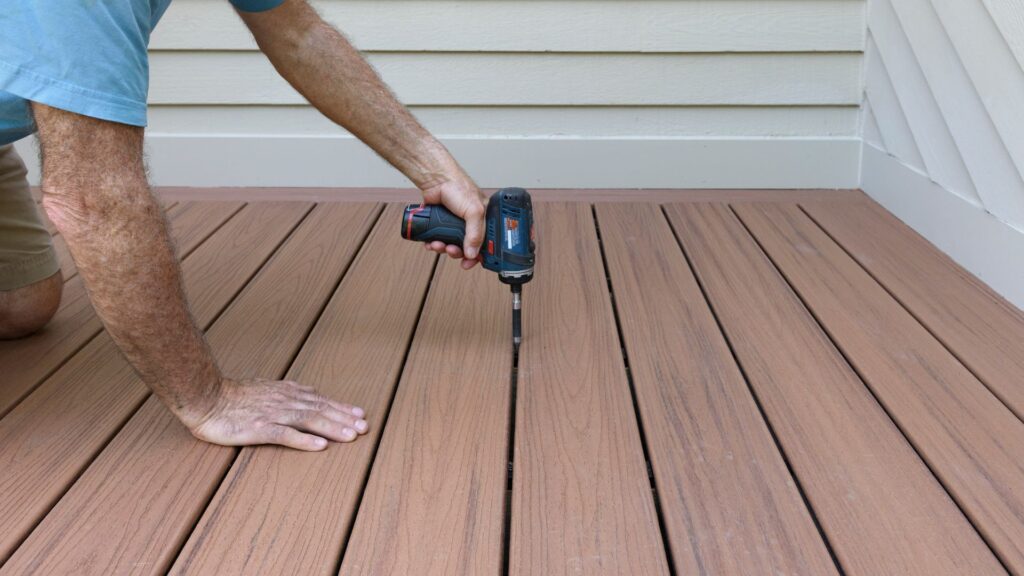
Additional Costs To Consider
When planning for a 12×12 deck, the price of materials and labor is only part of the equation. Homeowners often overlook extra expenses that can significantly raise the total budget. Knowing these hidden costs of building a deck upfront helps you avoid surprises and make smarter decisions.
Permits And Inspection Fees
Most municipalities require building permits for deck projects, especially if the deck is elevated or attached to your home. Permit fees vary widely depending on location, but you should expect anywhere from $100 to $500. Some areas may also charge for inspections during or after construction to ensure safety and code compliance. Skipping permits can lead to fines or problems when selling your home, so it’s best to factor them into your initial budget.
Site Prep Or Old Deck Removal
If you’re replacing an existing deck, removal costs can range from $300 to $1,000 depending on size and disposal requirements. For a new deck on raw ground, you may need grading, leveling, or clearing brush. These steps ensure a stable foundation but add extra time and cost. The condition of your yard and soil can make site preparation a bigger expense than many homeowners expect.
Furniture, Staining, Sealing, And Ongoing Maintenance
Building the deck is just the start—furnishing and maintaining it is where ongoing costs come in. Outdoor furniture can easily add hundreds or even thousands of dollars to your project. Wood decks require staining and sealing every two to three years, which may cost $200 to $600 each time. Even composite decks, while lower maintenance, still need occasional cleaning and care. These deck maintenance costs are often forgotten but are essential for keeping your outdoor space functional and attractive.
By considering these additional costs early in the planning process, you’ll have a realistic understanding of what your 12×12 deck project will truly cost. From permits to maintenance, each element contributes to the overall investment. Planning for them now ensures your deck remains safe, beautiful, and enjoyable for years to come.
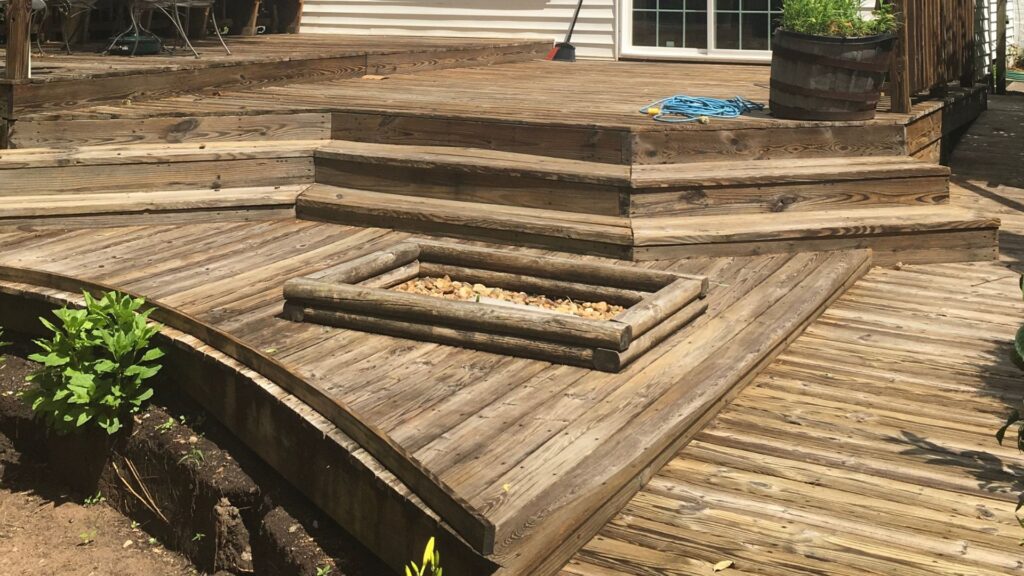
Tips To Save Money On Your Deck Project
Building a deck is an investment, but that doesn’t mean it has to break your budget. With the right planning and smart decisions, you can cut costs without sacrificing quality. Here are some proven ways to save money on your 12×12 deck project while still getting a space you’ll enjoy for years to come.
Buy Materials During Seasonal Sales
Lumber, composite boards, and deck hardware often go on sale during the off-season. Many home improvement stores lower prices in late fall or early winter when demand slows. By purchasing materials ahead of time and storing them properly, you can reduce your overall project cost. Planning around seasonal discounts is one of the easiest ways to save hundreds of dollars.
Choose A Simpler Design
The more complex your deck design, the higher the cost. Extra corners, levels, or custom railings all add labor and materials. A straightforward rectangular 12×12 deck not only saves money but also makes the project quicker to complete. If your budget is tight, keep the design simple now and consider adding enhancements later.
Do Prep Work Yourself
Site preparation can add up quickly if handled entirely by a contractor. Removing shrubs, leveling ground, or tearing out an old deck are tasks many homeowners can do on their own. Taking on these steps before professional work begins lowers labor costs and shortens the time a crew spends on the job.
Get Multiple Contractor Quotes
Never settle for the first price you’re given. Reach out to at least three licensed contractors and ask for detailed estimates. Be sure each quote includes material costs, labor, and potential extras so you can compare fairly. Competition among contractors often leads to better deals, and you’ll gain valuable insights into market pricing in your area.
Suggest Eco-Friendly Options For Long-Term Savings
While eco-friendly materials like composite or recycled decking can cost more upfront, they save money over time. These options require little to no staining, sealing, or replacement, reducing long-term maintenance expenses. Choosing durable, sustainable materials also boosts your deck’s lifespan, giving you more value for your investment.
Saving money on your deck project doesn’t mean cutting corners—it means making smart choices that balance cost and quality. By planning ahead, comparing options, and taking on a few tasks yourself, you can enjoy a durable 12×12 deck without overspending.
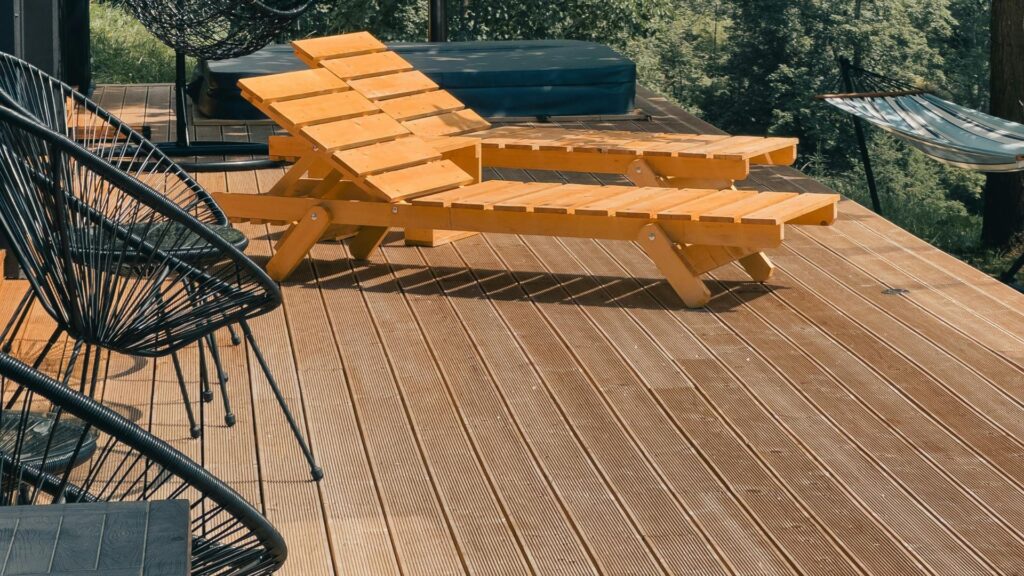
Return On Investment (ROI) & Value To Your Home
When planning a 12×12 deck, it’s easy to focus only on upfront costs. But the bigger picture is about more than money spent—it’s about the value a deck adds to your home and lifestyle.
A well-built deck instantly increases a home’s appeal. Buyers see outdoor living spaces as extensions of the home, especially in markets where entertaining and relaxation outdoors are popular. By adding a deck, you’re not just improving square footage; you’re giving potential buyers a reason to imagine themselves living and enjoying the space. This emotional connection often translates into higher offers when it’s time to sell.
From a financial perspective, decks consistently rank as one of the best remodeling projects for return on investment. On average, homeowners recover 60–70% of their deck building costs when they sell. For example, if you spend $6,000 on a 12×12 deck, you could potentially see $3,600 to $4,200 added back in resale value. That’s a strong return compared to many other home improvement projects.
Of course, ROI depends on several factors:
- The materials used—composite decks may cost more upfront but attract buyers who value low maintenance.
- The quality of craftsmanship—decks that look sturdy, safe, and stylish stand out during home showings.
- Market demand—regions where outdoor living is highly valued tend to see stronger ROI percentages.
But beyond numbers, a deck is more than an investment. A deck isn’t just a cost—it’s a lifestyle upgrade and a selling point. It creates a space where families gather, where summer dinners are shared, and where homeowners enjoy quiet mornings with a cup of coffee. That human experience is what makes a deck both a personal joy and a practical resale booster.
Adding a 12×12 deck is one of those rare projects that pays off twice—first in the years of enjoyment it provides, and later in the value it adds when it’s time to sell.
Ready to bring your dream deck to life? Don’t just guess at costs—get expert guidance and tailored solutions that fit your budget. Visit us to discover how we can help you design and build the perfect 12×12 deck for your home.
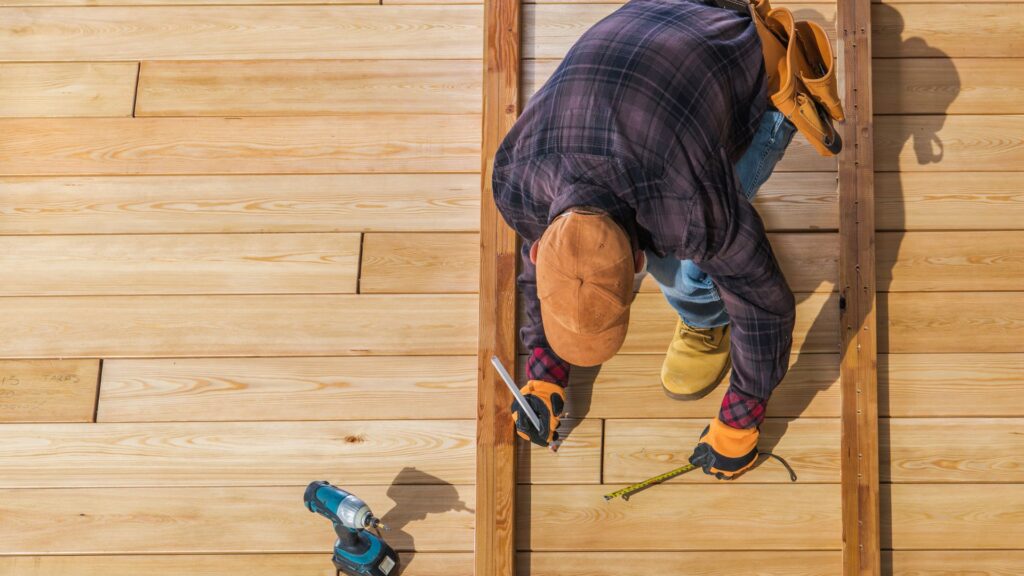
FAQs: About How Much Would A 12×12 Deck Cost To Build
How much does it cost to build a 12×12 deck?
The average cost to build a 12×12 deck ranges from $2,000 to $8,000. Prices vary depending on materials, labor, design complexity, and location.
What materials are cheapest for building a 12×12 deck?
Pressure-treated wood is the most affordable option, costing around $15–$25 per square foot. It requires regular maintenance but keeps upfront costs low.
What is the most durable material for a deck?
Composite and PVC decks are the most durable. They cost more upfront, often $30–$60 per square foot, but last longer and need little maintenance.
Can I build a 12×12 deck myself to save money?
Yes, DIY building can cut labor costs significantly. However, it requires proper tools, construction skills, and compliance with local building codes.
Do I need a permit to build a 12×12 deck?
Most municipalities require permits for deck construction, especially if the deck is elevated. Check with your local building department before starting.
How long does it take to build a 12×12 deck?
A professional can typically build a 12×12 deck in 1–3 days, while a DIY project may take a week or longer depending on skill and available time.
What hidden costs should I expect with a deck project?
Hidden costs may include permits, inspections, site preparation, old deck removal, railing upgrades, stairs, and sealing or staining after completion.
How long will a 12×12 deck last?
A wood deck lasts about 10–15 years with proper maintenance, while composite and PVC decks can last 25–30 years or more with minimal upkeep.
What is the return on investment (ROI) for a deck?
A deck can provide an ROI of 60–70% at resale. Besides financial value, it improves outdoor living and increases a home’s curb appeal.
How can I save money on my deck project?
Choose simpler designs, compare contractor quotes, buy materials during sales, or handle prep work yourself. Opting for wood instead of composite also lowers costs.
Conclusion
Building a deck is one of the most rewarding home projects, and by now you have a clear picture of the main factors that shape the total cost of a 12×12 deck—from the materials you choose to labor, design complexity, and even hidden expenses like permits or maintenance. The good news is that there’s a cost option for every budget, whether you want a simple wood deck for affordability or a composite deck that offers long-term value with less upkeep. Careful planning is the key, so take the time to research your choices, compare contractor quotes, and balance upfront costs with durability and future savings. Now that you know how much a 12×12 deck costs to build, you can start planning your dream outdoor space with confidence and make the right decisions to fit your needs and lifestyle.

